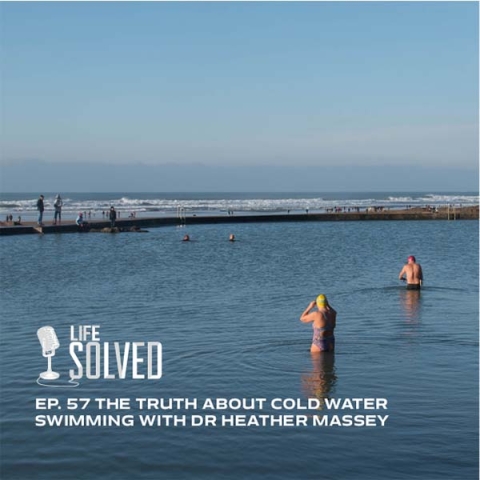

Is cold water swimming really great for your health and wellbeing?
In recent years, new outdoor swimming enthusiasts have flocked to lidos, lakes and the sea to enjoy health and wellbeing benefits. But there are plenty of us who might still be wary of our icy British waters.
So how safe is cold water swimming? How might it improve your mental health? And is it really as good for your body as the anecdotes suggest?
In the latest episode of the Life Solved podcast from the University of Portsmouth, Dr Heather Massey takes us through some of her research into physiology under extreme conditions. An outdoor swimming enthusiast herself, Heather has spent years exploring the processes and behaviour of our bodies in hot or cold environments or at altitude.
She says that a deeper public understanding of our physiology can help keep us safer and help us enjoy outdoor swimming even more:
What are the benefits people are reporting?
In response to the recent spike in outdoors swimmers since the pandemic, Heather and her team are now turning their research towards understanding some of the other benefits reported by swimmers.
But it’s not just the reported physiological perks that have caught her attention. Heather’s also looking at reports that anxiety, depression and mental health have all improved for people taking the dive. She’s hoping to study this in a clinical trial with outdoor swimming groups.
Top tips before taking a dip
Heather advised that anyone thinking of trying out cold water swimming should first consult with their GP to make sure no underlying conditions might be triggered by the extreme cold. After that, her safety tips are to swim with a group, to familiarise yourself with common hazards, plan your exit from the water before you get in and swim for less time than you think you can handle.
In the podcast Heather takes you through the 4 stages of cold response to look out for in your swimming pals.
Helping people regulate their physiology
She’s also been turning her experience in extreme temperature body physiology to helping sufferers of Ectodermal dysplasias – a group of disorders that can impact sweat gland function. For people unable to sweat normally, research can help them find ways of staying comfortable and safe in changeable conditions:
You can listen to the full podcast and hear more about Heather’s research on Tuesday 15 February.
Search for “Life Solved” from the University of Portsmouth on your podcast app of choice, and why not share this story with a friend who might be interested.
